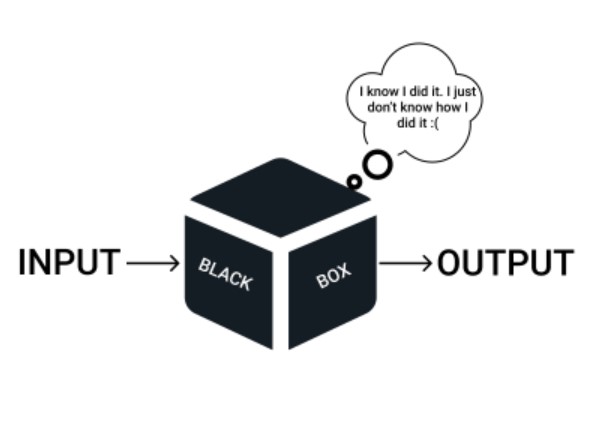Artificial Intelligence (AI) has been a cornerstone of technological advancement in recent years, transforming industries and redefining what machines can achieve. Among the various forms of AI, Blackbox AI stands out for its complexity and power. This term refers to AI systems whose internal workings are not easily interpretable by humans, making them akin to a “black box” whose operations are obscured. These systems are capable of processing vast amounts of data and making decisions without human intervention, thus revolutionizing various sectors by enhancing efficiency, accuracy, and innovation.
Understanding the Mechanisms of Blackbox AI
Blackbox AI systems utilize advanced algorithms and deep learning techniques to analyze data and generate outputs. Unlike traditional AI models where the decision-making process is transparent and understandable, Blackbox AI operates on complex, often opaque methodologies. These systems are typically built on neural networks that mimic the human brain’s functioning, processing data through multiple layers to learn and make predictions. The intricate nature of these networks means that even the developers might not fully comprehend how specific decisions are made.

The Importance of Blackbox AI
The allure of Blackbox AI lies in its ability to handle tasks that are beyond human capabilities. For instance, in the field of healthcare, Blackbox AI can analyze millions of medical records to predict disease outbreaks, recommend treatments, and even discover new drugs. In finance, it can detect fraudulent transactions and make investment recommendations with higher precision than human analysts. Its application extends to autonomous vehicles, where it helps in navigating complex environments and making split-second decisions that ensure safety and efficiency.
Applications of Blackbox AI
Healthcare
In healthcare, Blackbox AI is used to improve diagnostics and treatment plans. By analyzing large datasets of medical images, patient histories, and genetic information, AI can identify patterns and correlations that might elude human doctors. This capability is particularly useful in detecting early signs of diseases like cancer, where early intervention can significantly improve patient outcomes. Moreover, Blackbox AI can assist in personalizing treatment plans by considering a vast array of variables, thus optimizing the efficacy of medical interventions.
Finance
The financial sector benefits immensely from Blackbox AI through its applications in fraud detection, risk management, and trading. AI systems can analyze transaction patterns in real-time, flagging suspicious activities and preventing fraudulent transactions before they occur. In trading, Blackbox AI models can predict market trends and make trades at speeds and accuracies unattainable by human traders. This results in better investment strategies and increased profitability for financial institutions.
Autonomous Vehicles
Autonomous vehicles are perhaps the most visible application of Blackbox AI. These vehicles rely on AI to process inputs from various sensors, including cameras, radar, and lidar, to navigate roads, avoid obstacles, and follow traffic rules. The decision-making process involves analyzing vast amounts of data in real-time, a task well-suited to the capabilities of Blackbox AI. This technology promises to reduce accidents and improve transportation efficiency by removing the element of human error.
Challenges and Ethical Considerations
Interpretability and Transparency
One of the significant challenges of Blackbox AI is its lack of interpretability. Since the decision-making process is not transparent, it becomes difficult to understand why an AI system made a particular decision. This opacity can be problematic in critical areas like healthcare and criminal justice, where understanding the rationale behind decisions is crucial. Efforts are ongoing to develop methods that can provide insights into the workings of these systems without compromising their performance.
Bias and Fairness
Bias in AI systems is another pressing issue. Since Blackbox AI learns from historical data, any biases present in the data can be perpetuated or even amplified by the AI. This can lead to unfair or discriminatory outcomes, particularly in areas like hiring, lending, and law enforcement. Ensuring that AI systems are trained on diverse and representative datasets is essential to mitigate bias and promote fairness.
Accountability
The question of accountability is also significant. If a Blackbox AI system makes a faulty decision, determining who is responsible can be challenging. This is especially concerning in high-stakes areas such as healthcare and autonomous driving. Establishing clear guidelines and frameworks for accountability is crucial as AI systems become more integrated into everyday life.
The Future of Blackbox AI
Advancements in Explainable AI
To address the challenges of interpretability and transparency, researchers are working on Explainable AI (XAI). XAI aims to make AI systems more understandable to humans by providing explanations for their decisions. This involves developing models that can offer insights into their workings without sacrificing accuracy and performance. The integration of XAI with Blackbox AI could pave the way for more trustworthy and reliable AI systems.
Integration with Other Technologies
The future of Blackbox AI also involves its integration with other emerging technologies such as the Internet of Things (IoT), blockchain, and quantum computing. Combining Blackbox AI with IoT can enhance smart systems, allowing for real-time data processing and decision-making in areas like smart cities and industrial automation. Blockchain and quantum computing offer secure data management and processing power, enhancing the capabilities of Blackbox AI and addressing trust issues.
Ethical AI Development
As Blackbox AI continues to evolve, ethical considerations will play a crucial role in its development. Establishing robust ethical guidelines and regulatory frameworks will be essential to ensure that AI is used responsibly and beneficially. This includes promoting transparency, fairness, and accountability in AI systems, as well as ensuring that they are developed and deployed in ways that respect human rights and societal values.
Conclusion
Blackbox AI represents a significant leap forward in the field of artificial intelligence, offering capabilities that can transform industries and improve lives. Its ability to process vast amounts of data and make complex decisions holds great promise for sectors such as healthcare, finance, and transportation. However, the challenges of interpretability, bias, and accountability must be addressed to fully realize its potential. By advancing Explainable AI, integrating with other technologies, and adhering to ethical guidelines, the future of Blackbox AI can be both innovative and responsible, ensuring that it benefits society as a whole.
For more details and updates on Washingtontimes, return frequently.


